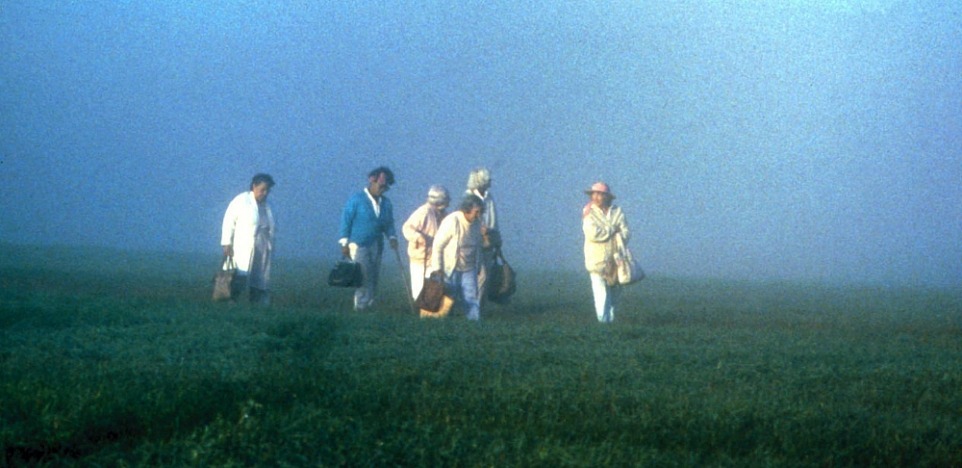Seven long-lived Canadian women are on a sightseeing trip when their bus breaks down in an unpopulated rural area. They find shelter in an abandoned farmhouse. Scavenging for food, they come up with frogs, mushrooms, trout, and strawberries.
The women make the best of a bad situation by sharing the stories of their lives and talking about family, marriage, love, work, religion, and death. Although battered by time, toil, and hardship, these women all possess an inner and outer radiance, which director Cynthia Scott captures and conveys again and again in this remarkable and poignant film.
Michelle, the young black bus driver, twists her ankle but keeps the spirits of the group up with her contagious laughter and fine singing voice. Alice, a Mohawk Indian, is the earth mother whose understanding of nature benefits them all. Mary, an artist and a lesbian, is a treasure-trove of wisdom, and Winnie, a former belly dancer, is a natural comedian.
The take-charge person in their number is Catherine, a nun, who tries to fix the bus and, when that fails, hikes 20 miles on arthritic ankles for help. Her activism and buoyant faith are quite a contrast to Beth's passivity — she's unaccustomed to the wilderness — and Constance's gloomy depression. The marvel of the group is Cissy, a survivor of a heart attack, who exudes a joie de vivre that is positively inspiring.
Years may have wrinkled the skin of these women but their souls sparkle with surprising inner beauty. Scott's use of non-professional actresses gives Strangers in Good Company an appealing naturalness. As these women talk about their pasts, the director intersperses photos of their lives as daughters, wives, and mothers. Watching this film we are challenged to think about the stories of our own lives and our times in the country of the long-lived.
